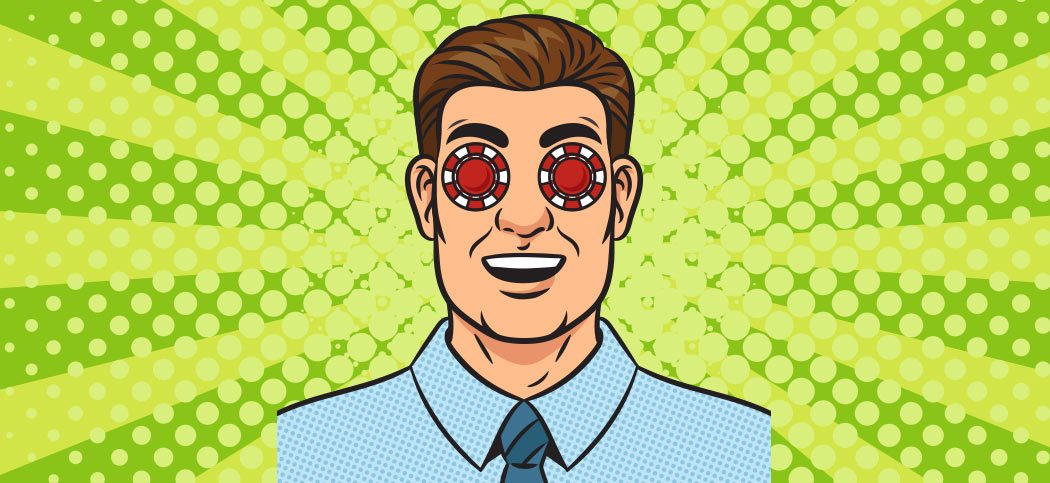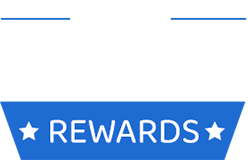Do You Have a Gambling Problem?

Most people can enjoy gambling recreationally without it becoming problematic. However, for some individuals, gambling can turn into an unhealthy addiction that harms their finances, relationships, and overall well-being. This article will help you determine if you have a gambling problem, explain how to measure it, and provide guidance on what to do if you believe you have a gambling addiction.
Advertiser Disclosure
By accessing and depositing through our provided links, we may receive a commission at no extra cost to you. Learn More.
✖How We Rank Casino Bonuses using BonusRank
Not just any online casino makes the grade. We have a strict process for testing online casinos to determine whether we even list them.
Once we approve a casino, our team of experts starts the real work. And it's thorough. Our unique BonusRank algorithm considers all the important aspects of a bonus and calculates a score that allows meaningful and direct comparison between bonuses. You don't have to guess, our rating scale will clearly show you if a bonus is great, good enough, or should be avoided.
Read more about our BonusRank system and how we make bonus comparisons.
✖What Does It Mean To Have A Gambling Problem?
Having a gambling problem means gambling is causing significant negative effects in your life. There's a difference between enjoying the occasional bet for entertainment versus having an unhealthy attachment to gambling that harms finances, relationships, work, or emotional wellbeing.
An addiction causes a person to gamble more than they can afford, lie about their gambling, and make reckless choices in pursuit of gambling thrills. Gambling addiction often also negatively impacts primary relationships in your life.
If you don’t have a gambling problem, we still strongly recommend following a set of gambling rules to ensure a continued safe experience.
Gambling Addiction Is Neurological
Gambling addiction is a psychological and behavioral disorder characterized by being unable to control gambling activities despite the harm it causes. People with gambling addictions will continue gambling in spite of mounting debts, relationship conflicts, and career setbacks.
If you’ve been negatively impacted by gambling, it’s likely that your brain is triggering a series of neurological events that make it very challenging to stop. The production of dopamine activates a ‘more’ response which is what ultimately leads to the compulsion.
If you don’t have time to read the entire article, cast your eyes over the next few points which summarise the key takeaways:
Quick Help Guide
- If gambling is causing financial, emotional, or relationship problems, it may be out of control.
- Look for signs like lying about gambling, needing to gamble more to get the same thrill, or gambling to escape problems.
- Consider setting gambling limits, taking a break, or excluding yourself from gambling sites.
- Reach out to a gambling helpline or therapist for support and treatment options.
- With help, many people overcome gambling addictions and regain control.
Signs That Your Gambling Is Out Of Control
Honest self-reflection about the following questions can help determine if you have a gambling problem:
- Are you gambling with money you can't afford to lose?
- Do you often gamble longer than planned or for more money?
- Do you lie to loved ones about gambling?
- Do you gamble to escape problems or feelings?
- Do you need to gamble more and more to get the same thrill?
- Do you get restless or irritable if you can't gamble?
- Does gambling cause financial, work, or relationship troubles?
- Have you tried to cut back but couldn't?
Answering "yes" to multiple signs indicates your gambling is likely out of control and you should seek out appropriate treatment.
Keep in mind that everyone is different, and while these are broad questions, there might be other signs of an unhealthy habit that are unique to you.
The Different Stages Of Gambling Addiction
Recognizing where you fall on the spectrum of gambling addiction is key to determining the extent of the problem and, by extension, the best way to treat it.
In the next few sections we’ll describe the three main stages of gambling addiction:
Stage 1 - Recreational Gambling
Most people can gamble recreationally without progressing beyond this stage. Recreational gambling means betting small, affordable amounts purely for entertainment a few times per month. At this stage, gambling is under control.
Stage 2 - At-Risk Gambling
At-risk gambling involves bigger bets, more frequent gambling sessions, and preoccupation with gambling. This is a warning sign stage where gambling is starting to become problematic but is not yet a full addiction.
Stage 3 - Gambling Addiction
At the addiction stage, gambling causes harm yet the person cannot control their impulses to gamble. They gamble despite negative consequences and often lie about their behavior. Attempts to cut back fail. This stage has a mental and biological hold that makes gambling feel like a need.
What To Do If You Think You Have A Gambling Problem
The fact that you have the self awareness to identify a personal gambling problem is already and incredible step in itself.
Take a moment to congratulate yourself on this initial step before working your way through the next stages.
Step 1: Be honest with yourself
The first step is acknowledging that gambling has become an unhealthy addiction and being willing to make changes. Denial will only worsen problems. Admitting the truth to yourself opens the door to recovery.
Step 2: Tell trusted friends and family
Sharing the truth allows loved ones to provide support and keep you accountable. Let close friends or family members know about your addiction and ask for support in your recovery efforts. Having accountability to people who care about you can strengthen your commitment to change.
That being said, you should be prepared for negative reactions of disappointment or anger given the harms caused by addiction. Honesty combined with commitment to improve has the best chance of rebuilding strained relationships. Consider including loved ones in therapy sessions to facilitate understanding.
Step 3: Exclude yourself from gambling
If your compulsion to gamble is particularly strong, you should make use of responsible gambling tools, or sign up for self-exclusion lists at casinos and online gambling sites. The latter will completely block access and remove temptations during recovery.
You can also permanently close online gambling accounts. These barriers are vital given the powerful pull addictions can have on behavior.
Step 4: Seek professional help
Make an appointment with a therapist, counselor or professional organization that specializes in gambling addiction treatment. There are both inpatient and outpatient gambling recovery programs, depending on what works best for you.
Treatment involves counseling to identify triggers, developing healthier coping mechanisms, changing thought patterns, managing finances, rebuilding relationships/careers damaged by the addiction, and learning to embrace activities that provide natural highs versus artificial gambling highs.
Prescription medications may also help curb cravings and addictive impulses. Ongoing participation in treatment and therapy gives the best chance for long-term recovery success.
Step 5: Replace gambling with healthy activities
Take up hobbies, exercise, social activities to fill the void gambling leaves. Fill the void left by abandoning gambling with positive hobbies, sports, social interactions and other activities you enjoy.
This restructures your lifestyle around natural mood boosters versus gambling dopamine rushes. Discover new interests and passions. The excitement, challenge and social connection from these activities helps satisfy emotional needs previously met through gambling in unhealthy ways.
Step 6: Join a support group
Once you’re in recovery, you need to make sure it sticks. Connect with others recovering from gambling addiction for encouragement.
Groups like Gamblers Anonymous provide invaluable peer support, guidance, motivation and accountability during the recovery process. It helps to know you are not alone. Listen to others’ stories, share your experience, and establish friendships grounded in the common mission of addiction recovery.
Step 7: Strengthen finances
Get debt and budgeting help so gambling losses won't tempt you to try to win money back.Get professional help creating a debt repayment plan and budget to stabilize finances damaged by gambling losses.
Improving financial health eliminates a major temptation to gamble to make money, which usually leads to even bigger losses and debt due to the addiction. Counseling can help uncover the root motivations behind gambling for money in spite of continual losses.
Developing healthier financial habits and being accountable to a budget is critical for maintaining gambling abstinence over the long-term.
Responsible Gambling Tools At Online Casinos
Online casinos offer various responsible gambling tools to help players control spending and time. Using these can allow recreational gambling without developing unhealthy addictions.
In fact, these tools should come as standard with regard to responsible gaming obligations of a casino:
Time Limits
Setting a time limit caps how many hours or minutes you can gamble per session or day. For example, you could set a 2 hour time limit to prevent overly long gambling sessions. Once the time limit is reached, you will be automatically logged out for the remainder of the time period.
Loss Limits
Loss limits let you define the maximum amount you can lose gambling per session or day, usually ranging from $10 to $1000 limits. When your losses hit the preset limit, you will be prevented from gambling further until the next day or session. This stops excessive spending.
Deposit Limits
Deposit limits allow restricting how much money you can transfer into your account to gamble with over various time frames like daily, weekly or monthly limits. Deposit caps help control overall spending.
Time Outs
Time outs let you block yourself from gambling for a period of time, like a few hours, a week, or several months. This can help reset gambling habits. Once the timeout expires, access is restored.
Reality Check
It’s hard to gauge the passing fof time when spinning slots and placing bets. Reality checks are pop-up reminders that appear periodically as you gamble to show how long you've played and how much you've spent. This helps maintain awareness.
Payment Block
A payment block prevents any deposits or payments while it is active. This is useful when you need an extended gambling break but don't want full self-exclusion.
Using combinations of these tools allows recreational gambling within customized, controlled limits tailored to what you can afford to spend safely. They provide barriers that can minimize the risk of developing addictions. However, those with serious addictions likely need to cease gambling entirely.
Depending on the online casino, the responsible gambling tools discussed above can be immediately available for self-serve, or you’ll need to reach out to customer support to put them in place.
Self-serve tools, whereby you can manually adjust restrictions from your account section, are preferable. However the majority of online casinos will require your to speak to the team on live chat and aske them to set limits for you.
What If You Can’t Moderate Your Gambling?
If you try to gamble in moderation but cannot seem to stick to limits or control urges, this indicates you likely need to stop gambling completely. Abstinence is required for gambling addicts.
If this is the situation, we suggest one of two options:
Account Closure
Account closure involves permanently deleting your account with an online casino. This is the most severe option for controlling gambling and is irreversible.
- You contact customer support and request for your account to be closed. This can usually be done via live chat, email, or phone.
- The casino will likely ask you to confirm your desire to close the account and may ask for ID verification to process the request.
- Once initiated, the closure cannot be reversed. All your personal and financial data associated with the account will be deleted.
- You will not be able to open a new account in the future using the same name, email, payment method, IP address, etc. The casino keeps records to enforce this exclusion.
- Any remaining bonus funds or account balance you have will be forfeited when the account closes.
- The casino account will be permanently inaccessible within 24-48 hours after closure processing.
Self-Exclusion
Self-exclusion allows you to voluntarily ban yourself from gambling sites for a set period of time, anywhere from 6 months to 5 years typically.
- You start the self-exclusion process through customer support, similar to account closure.
- You will be asked to choose a length of exclusion time, like 6 months, 1 year, 2 years, etc.
- Once the self-exclusion period starts, your account is completely blocked from any deposits or gambling.
- However, unlike closure, your account details are not deleted. Your data is kept on file to enforce the exclusion.
- If you attempt to log in or gamble during the exclusion period, your account will be detected and blocked.
- To lift the self-exclusion once the term is over requires you to contact customer service and request reactivation after passing identity checks.
- Self-exclusion can be extended if you feel you need more time excluded when the term ends.
In summary, self-exclusion is temporary while closure is permanent. Both effectively prevent you from gambling when control is lost.
Professional Help
Here are some organizations offering help for gambling addiction:
| Organization | Website |
|---|---|
| International | |
| Gambler’s Anonymous | www.gamblersanonymous.org |
| Gambling Therapy | www.gamblingtherapy.org |
| Gamblers Anonymous | www.gamblersanonymous.org |
| USA | |
| National Council on Problem Gambling | www.ncpgambling.org |
| Mayo Clinic | www.mayoclinic.org |
| UK | |
| GamCare | www.gamcare.org.uk |
| Gamblers Anonymous UK | www.gamblersanonymous.org.uk |
| Australia | |
| Gambling Help Online | www.gamblinghelponline.org.au |
| Gamblers Anonymous Australia | www.gaaustralia.org.au |
| New Zealand | |
| The Problem Gambling Foundation of New Zealand | www.pgf.nz |
| South Africa | |
| South African Responsible Gambling Foundation | responsiblegambling.org.za |
| Canada | |
| Centre for Addiction and Mental Health | www.camh.ca |
| Ontario Problem Gambling Helpline | www.connexontario.ca/Directory/Program/2 |
| Gambling Support Network | www.gamblingsupportnetwork.ca |
| Problem Gambling Institute of Ontario | www.problemgambling.ca |
| Gamblers Anonymous Canada | www.gamblersanonymous.org/ga/addresses-canada |
References & Resources
- American Psychiatric Association - Diagnostic criteria for gambling disorder - https://www.psychiatry.org/patients-families/gambling-disorder/what-is-gambling-disorder
- UK National Health Service - Care and support guide - https://www.nhs.uk/conditions/social-care-and-support-guide/
- Journal of Gambling Studies - Phases of gambling addiction academic research - https://link.springer.com/article/10.1007/s10899-009-9143-y
- Gamblers Anonymous - Questions for self diagnosis - https://www.gamblersanonymous.org/ga/content/20-questions
- Mayo Clinic - Gambling addiction treatment options overview - https://www.mayoclinic.org/diseases-conditions/compulsive-gambling/diagnosis-treatment/drc-20355178
- Gambling Research Exchange Ontario - Review of gambling addiction stages and treatments - https://greo.ca/Modules/EvidenceCentre/Details/gambling-and-problem-gambling-in-ontario
- Substance Abuse and Mental Health Services Administration - Gambling addiction signs, screening, and treatment guide - https://store.samhsa.gov/sites/default/files/SAMHSA_Digital_Download/PEP20-06-01-001_508.pdf
- Scientific American - Origins of gambling addiction explained - https://www.scientificamerican.com/article/how-the-brain-gets-addicted-to-gambling/

